(a) A sample of 1.0 mol of a monoatomic ideal gas is taken through a cyclic process of expansion and compression as shown in figure. What will be the value of for the cycle as a whole?
(b) Which quantity out of and will be zero at equilibrium?
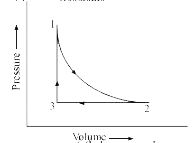
(a) The net enthalpy change, for a cyclic process is zero as enthalpy change is a state function, i.e.,
(b) Gibbes energy for a reaction in which all reactants and products are in standard state related to the equilibrium constant of the reaction as follows.
At equilibrium, &
or
when R=1
For all other values of K, will be non-zero.
Topper's Solved these Questions
- BOOK - VMC MODULES ENGLISHCHAPTER - THERMODYNAMICSEXERCISE - LEVEL-0 (SHORT ANSWER TYPE-II (3 MAKRS))6videos
THERMODYNAMICS
- BOOK - VMC MODULES ENGLISHCHAPTER - THERMODYNAMICSEXERCISE - LEVEL-0 (LONG ANSWER TYPE (5 MARKS))6videos
THERMODYNAMICS
- BOOK - VMC MODULES ENGLISHCHAPTER - THERMODYNAMICSEXERCISE - JEE ADVANCED (ARCHIVE)44videos
THERMODYNAMICS
- BOOK - VMC MODULES ENGLISHCHAPTER - THERMOCHEMISTRYEXERCISE - JEE ADVANCED (ARCHIVE)31videos
THERMOCHEMISTRY
- BOOK - VMC MODULES ENGLISHCHAPTER - THERMODYNAMICS & THERMOCHEMISTRYEXERCISE - Impeccable48videos
THERMODYNAMICS & THERMOCHEMISTRY
Similar Questions
A sample of 1.0 mol of a monoatomic ideal gas is taken through a cyclic process of expansion and compression as shown in figure. What will be the value of ΔH for the cycle as a whole ?
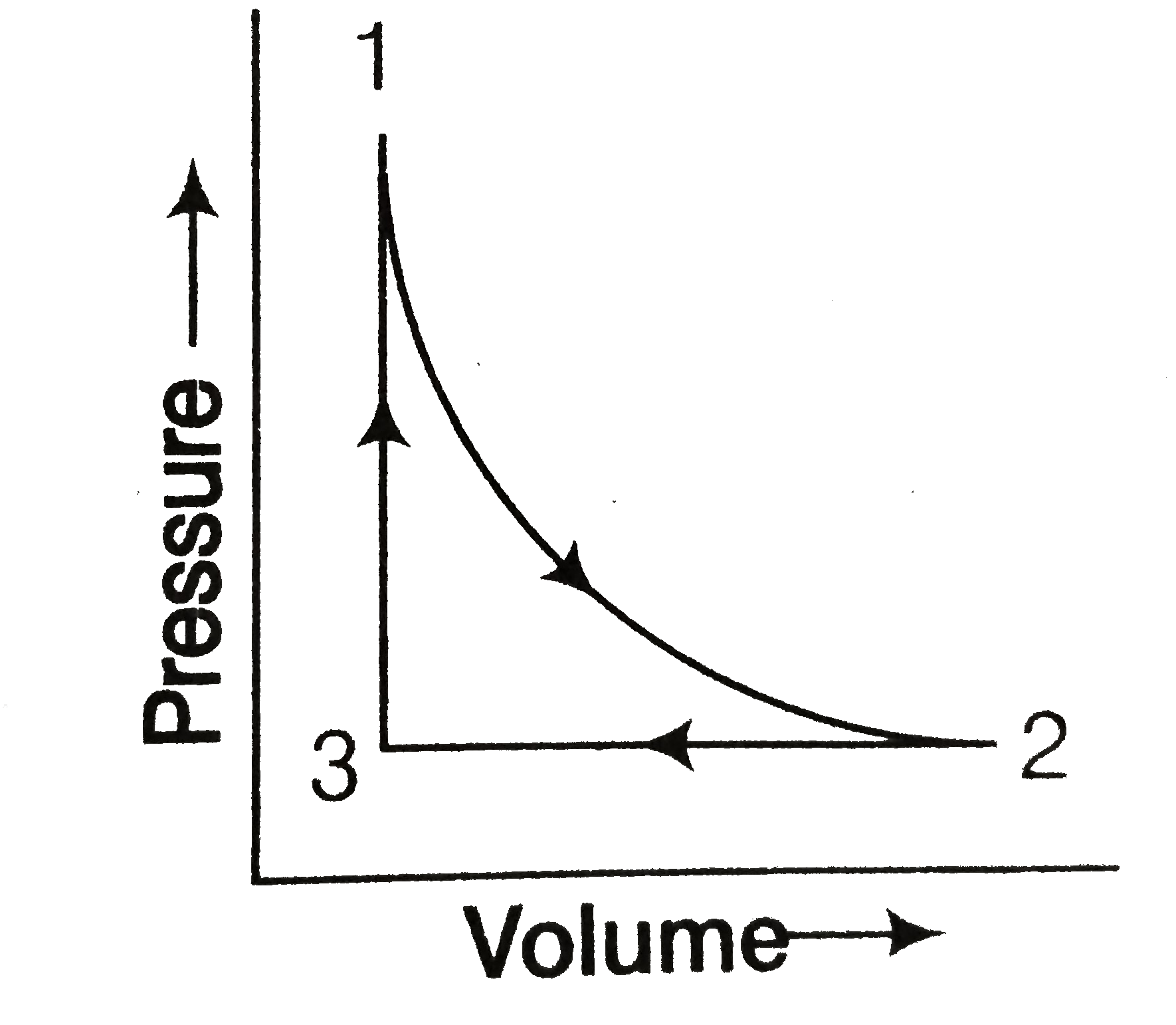 View Solution
View SolutionWhich quantity out of ΔrG and ΔrGΘ will be zero at equilibrium ?
View Solution1 mol of an ideal gas undergoes different thermodynamical process in P−V diragram given below :
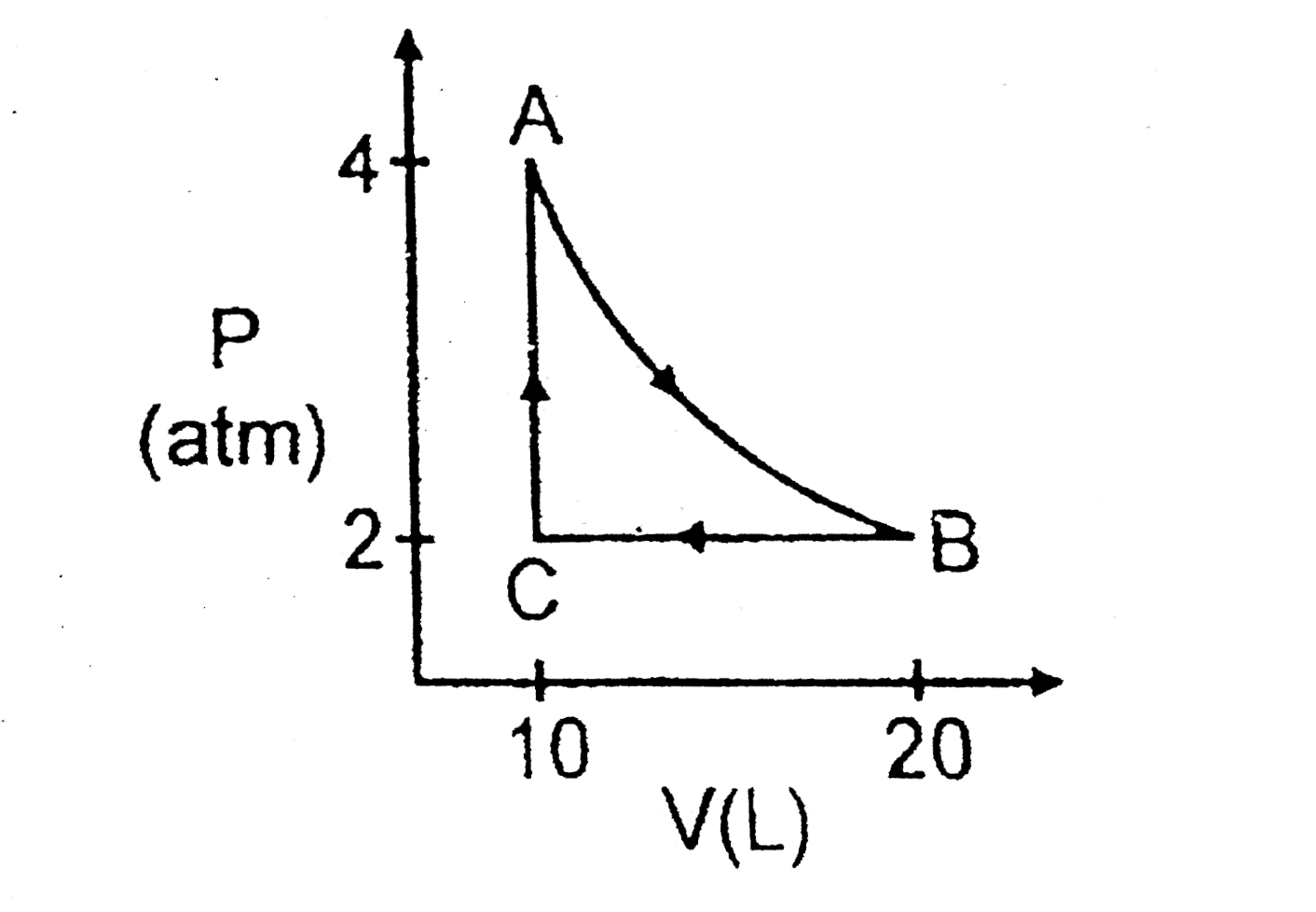
What will be the value of ΔH and ΔE for overall process ?View SolutionA sample consisting of 1mol of a mono-atomic perfect gas (CV=32R) is taken through the cycle as shown.
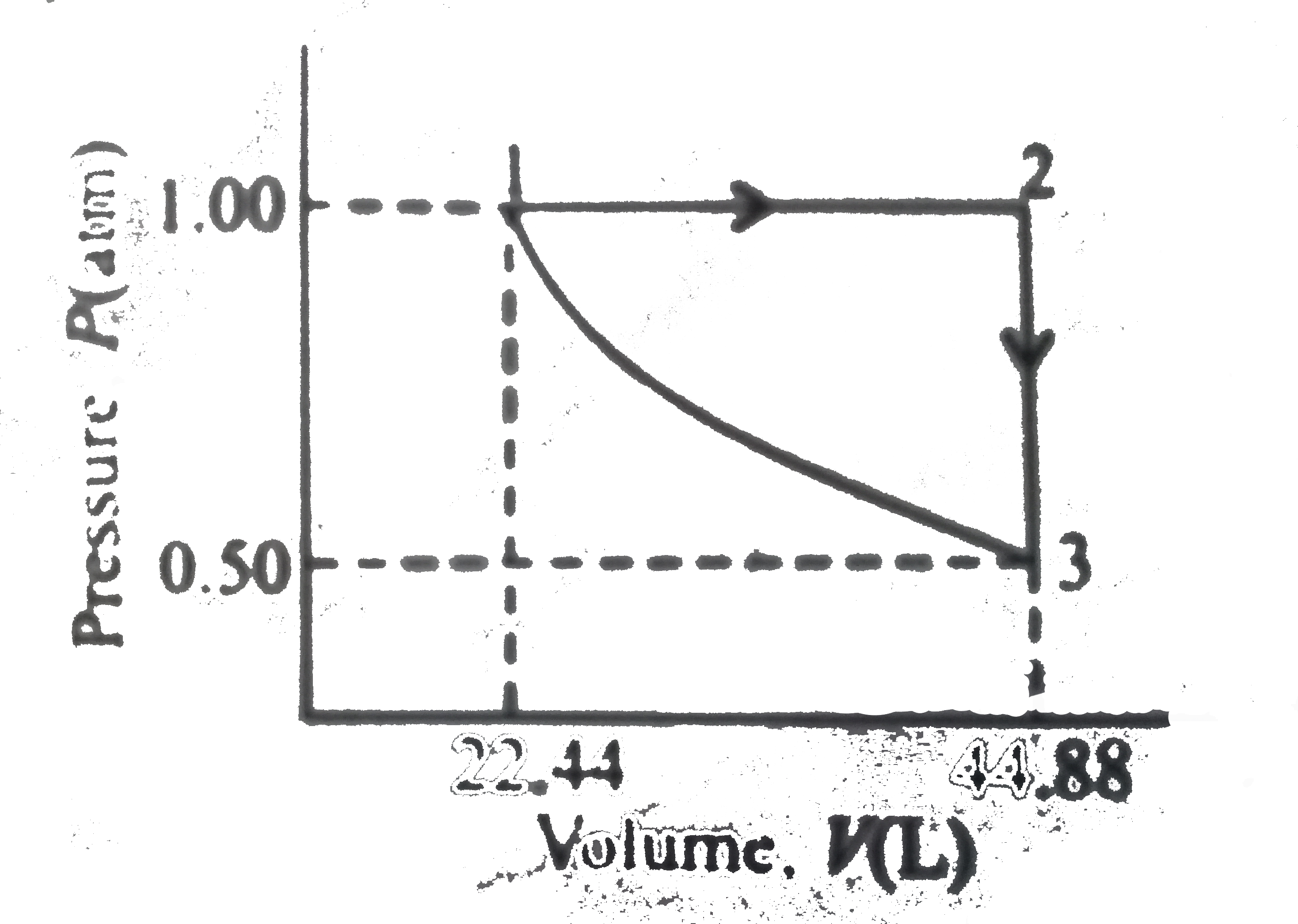
ΔH for the overall cycle isView SolutionA sample consisting of 1mol of a mono-atomic perfect gas (CV=32R) is taken through the cycle as shown.

ΔH for the overall cycle isView SolutionAn ideal mono atomic gas is taken through the cyclic process shown in fig. Linear expansion from A to B following by adiabatic compression back to original state
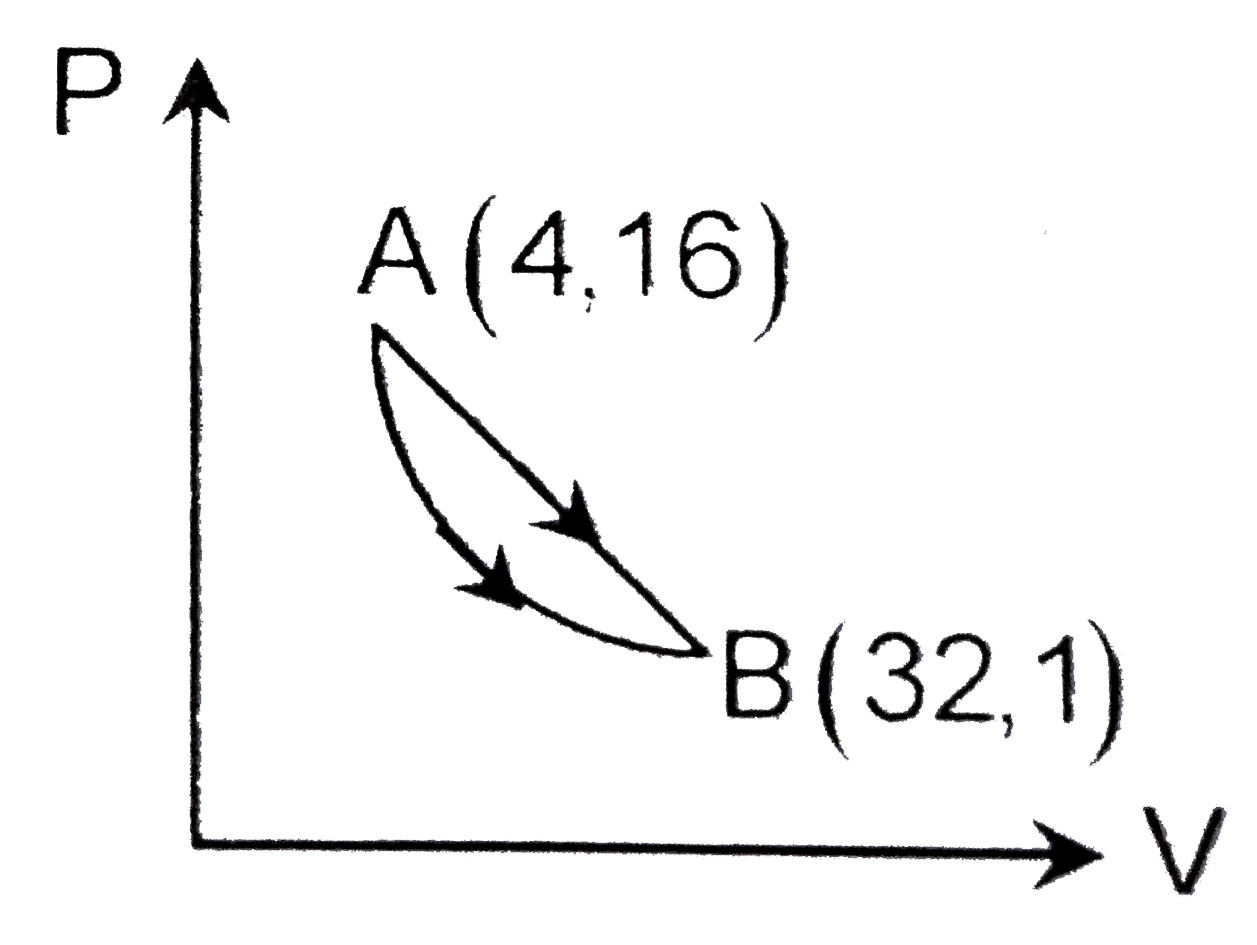 View Solution
View Solution1.0 mol of a monoatomic ideal gas is expanded from state (1) to state (2) as shown in figure. Calculate the work done for the expansion of gas from state (1) to state (2) at 298 K.
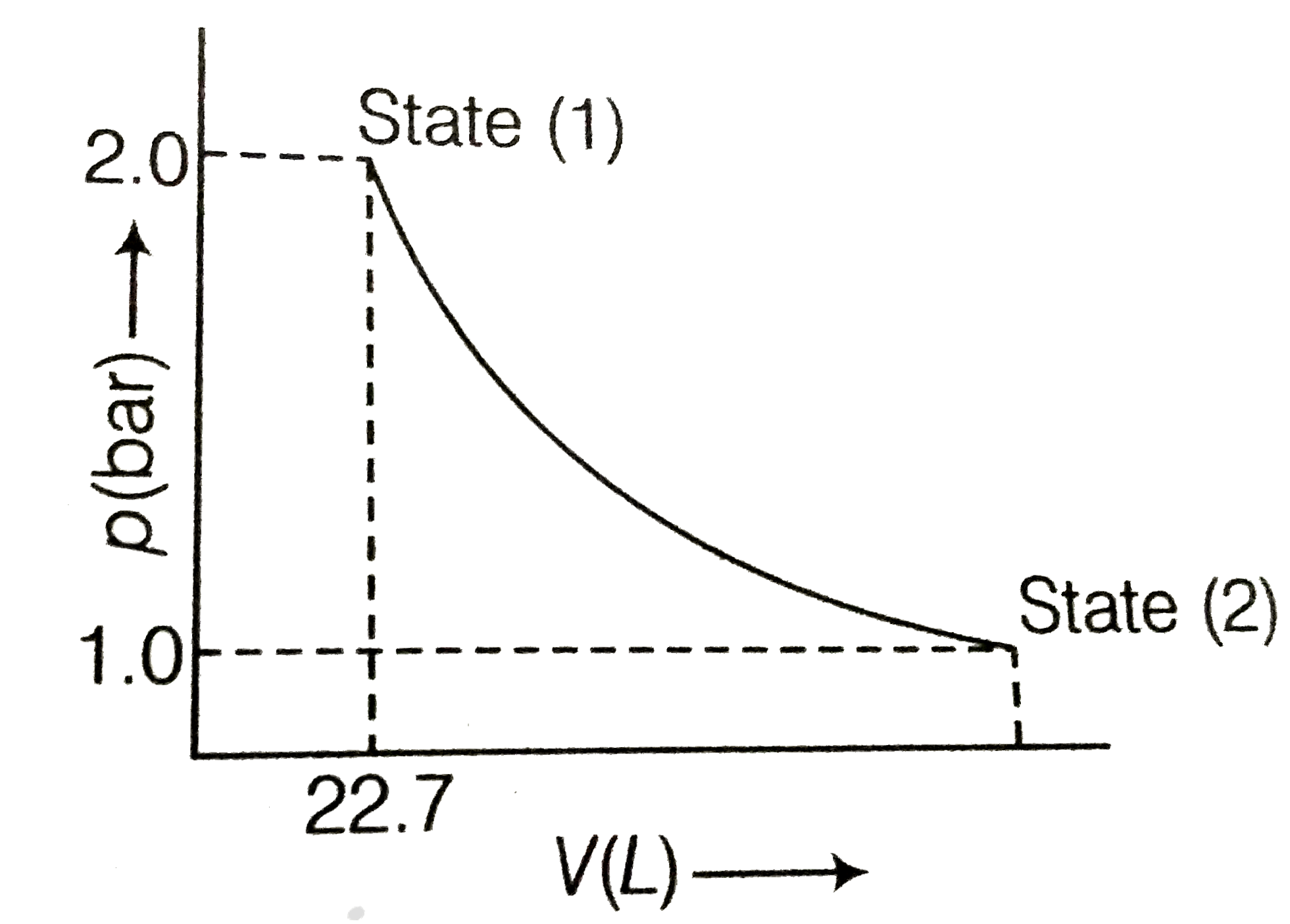 View Solution
View Solution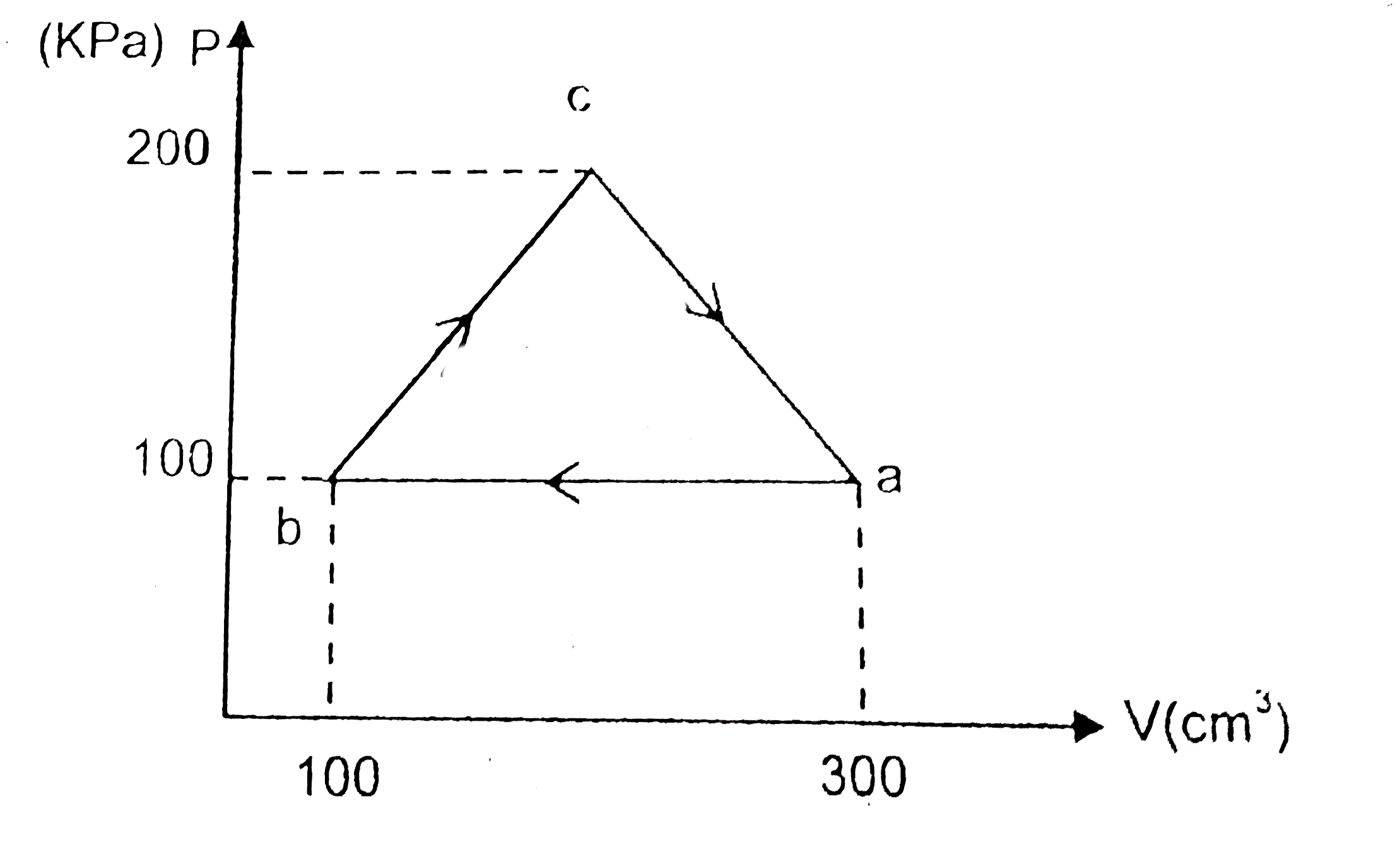
A thermodynamics system is taken through the cyclic process abca as shown in the figure. If the heat absorbed by the gas during the cycle is 5x joule then find the value of x.View SolutionAn ideal gas is taken through the cycle A→B→C→A, as shown in figure. If the net heat supplied to the gas in the cycle is 5 J the work done by the gas in the process A→B is
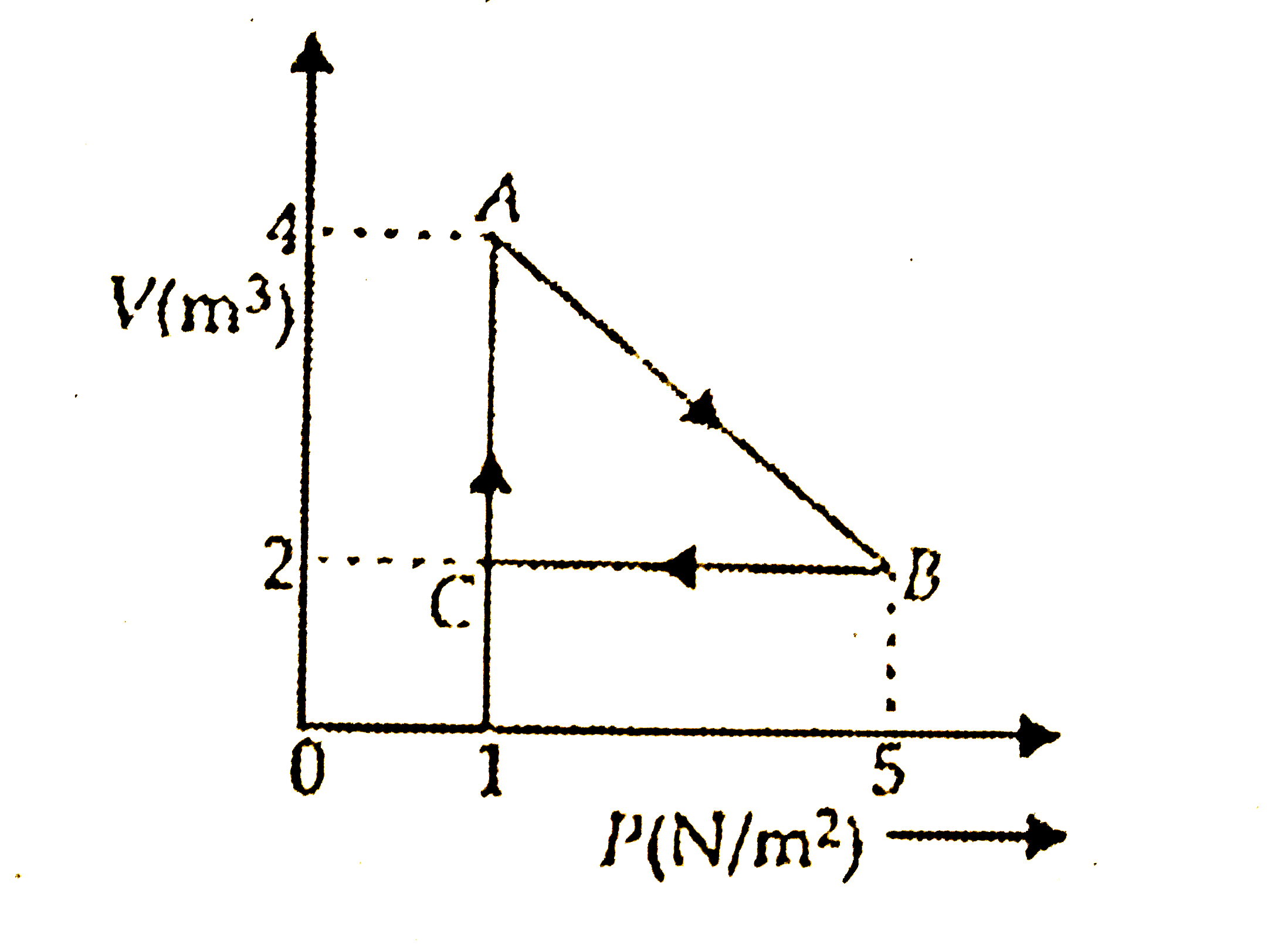 View Solution
View SolutionA sample consisting of 1mol of a mono-atomic perfect gas (CV=32R) is taken through the cycle as shown.
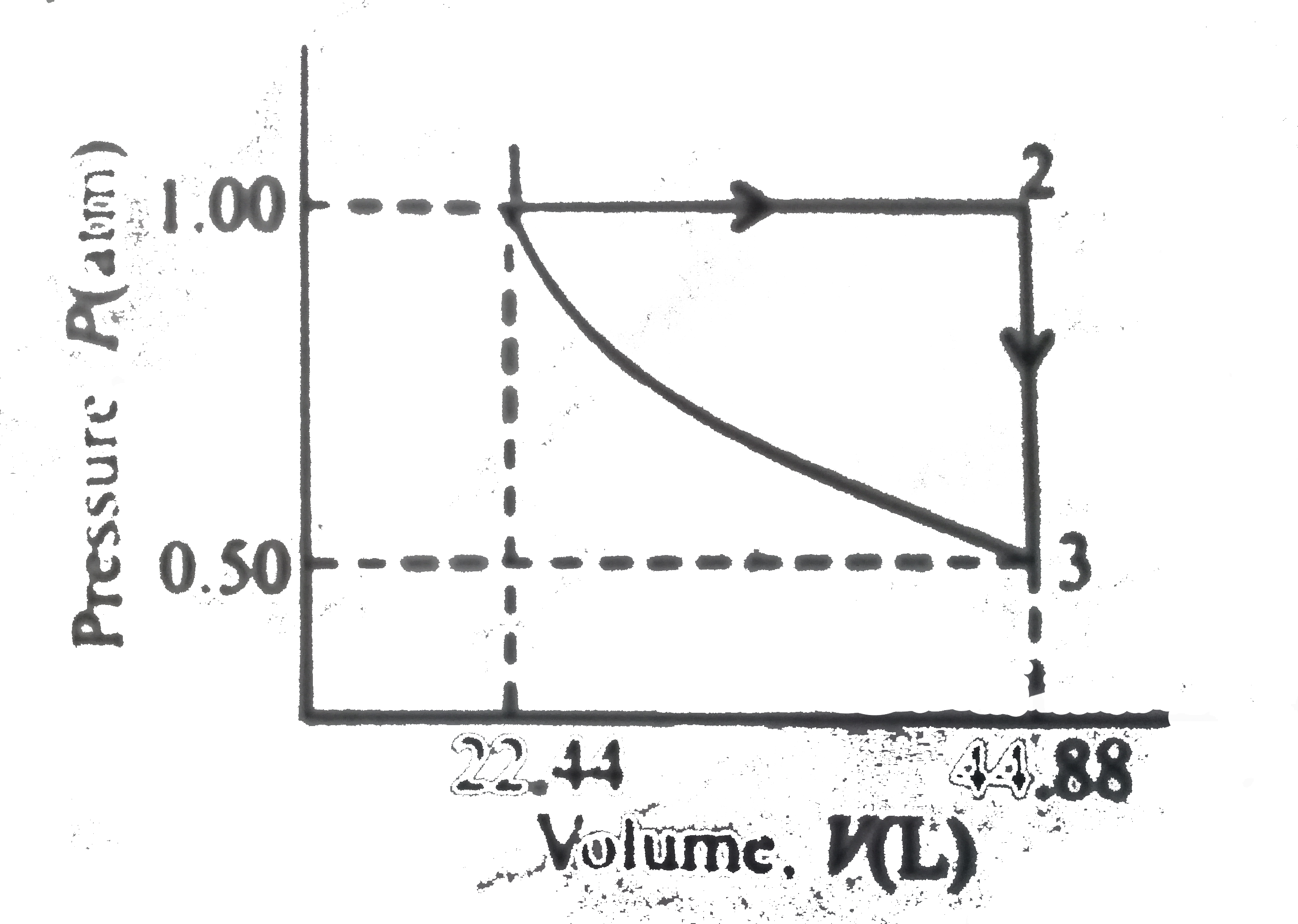
ΔU for the process (2→3) isView Solution

